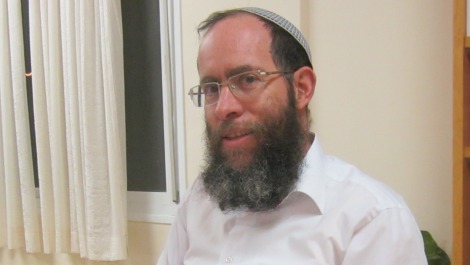Beit Midrash
- Jewish Laws and Thoughts
- Jewish Thought
- Subjects of Jewish Thougts
The Torah study is dedicatedin the memory of
Asher Ben Haim
Says the Rabbi, "A saintly person - a 'Hassid' - is one who presides over all of his spiritual and physical resources. He has complete control of his attributes and character traits. His decision-making faculty directs all of his attending limbs to act with zeal, diligence, and joy. They thus cause him to stand at the proper time without sloth, even if this is difficult. His eyes only gaze upon things which befit his sight, not upon images which should be avoided. All of the saintly person's limbs stand at attention in fear and awe to do the bidding of their commander, without worrying about any fatigue or loss that might befall them.
"It is not easy to control one's speech. It is not uncommon for a person to say things that he later regrets. A saintly person, however, is able to control his tongue. He does not emit a word from his mouth without thinking about it first. Every word is weighed and considered. Hence, the prayer of a Hassid is not a thoughtless and perfunctory act, like the speech of a parrot. Rather, every word is thought out, every word is said with intention.
Therefore, his prayer will is uplifting, and his time of prayer will be to him the most excellent and choice of times. He will see all other moments of his life as pathways leading to this moment. His very innards will crave this time, for it elevates him to spiritual heights. And, as we have already explained, he accomplishes all of his Divine service with joy, not lowliness. Prayer is for his soul as food is for the body - he prays to sustain his soul just as he eats to sustain his body.
------
Some of the text in the above article is taken from or based upon Rabbi N. Daniel Korobkin's translation of The Kuzari (Jason Aronson Inc.).
Rabbi Eliezer Melamed
Rosh Yeshiva of Har Bracha and rabbi of the settlement.
18. Torah Verses in the Prayers and in the Berakha of She-asa Li Kol Tzorki
Chapter 10: The Laws of Tisha Be-Av
Cheshvan 27 5782
Can i pray in other nusach?(part one)
Chapter six-part two
5775
Birkot HaTorah – The Blessings on the Torah
Chapter ten-part one
5775
Chanukah Candles and Domestic Peace
How Do We Know There Is a G-d?
Rabbi Oriel Twito | Kislev 21 5783

So What’s the Goal of Life?!!
Rabbi Ari Shvat | Elul 24 5780

Is Religious Faith Simply a Matter of Convenience?
Rabbi Shmuel Ariel | Tevet 6 5783





















